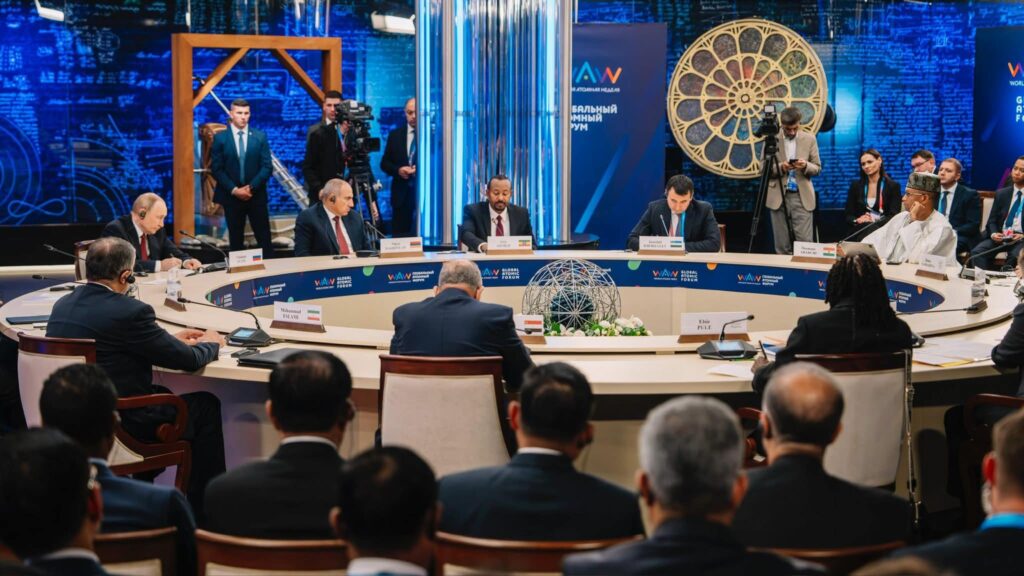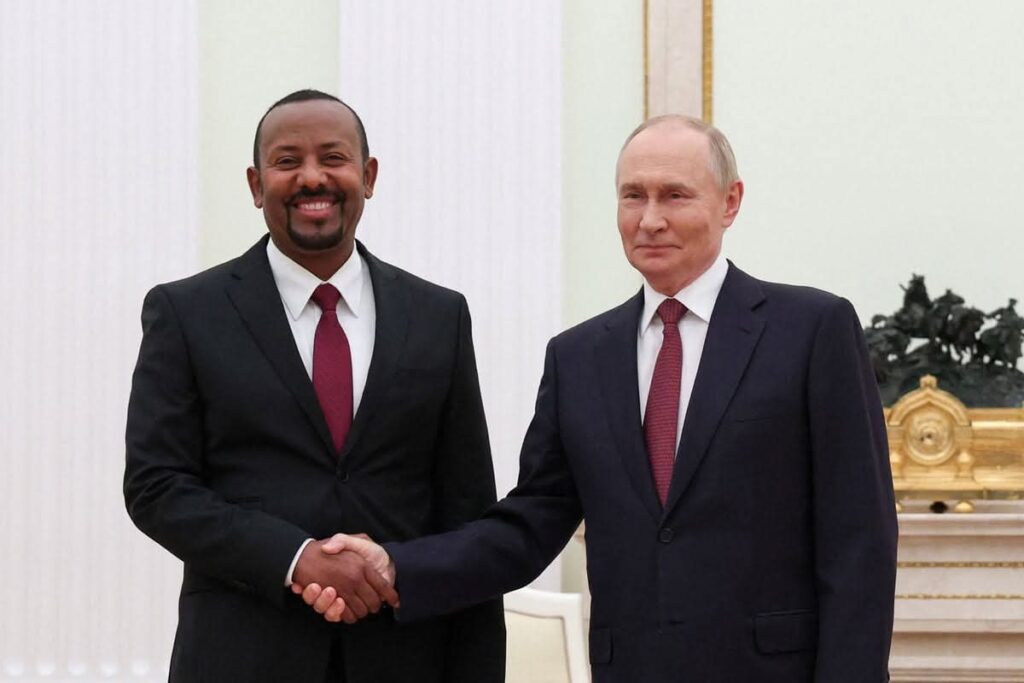Mekelle/Tel Aviv/Nairobi/Pretoria/London
Ethiopia Sign Nuclear Energy Cooperation Agreement with Russia
Addis Ababa/Moscow, September 26, 2025
Ethiopia and Russia have signed a landmark agreement to collaborate on the development of nuclear energy, marking a significant step in Ethiopia’s long-term energy diversification strategy. The deal was announced on Thursday during the World Atomic Week conference in Moscow, where Ethiopian Prime Minister Abiy Ahmed met with Russian President Vladimir Putin.

According to Russia’s state-owned nuclear corporation, Rosatom, the agreement outlines plans for the planning and construction of a nuclear power plant in Ethiopia, alongside the development of related infrastructure and human capacity.
The partnership will also cover the training of Ethiopian personnel, the establishment of a nuclear science and technology center, the strengthening of regulatory frameworks, and cooperation in peaceful applications of nuclear science, including medicine, agriculture, and research.
Prime Minister Abiy described nuclear energy as “essential to secure long-term development, diversify our energy mix, and realize Ethiopia’s potential,” emphasizing that the program would be implemented “responsibly with careful planning, the highest safety standards, and strong local capacity.” He further highlighted the broader significance of the initiative, stating that “nuclear is not just energy, it is people it offers a chance to unlock knowledge and inspire students to explore science and innovation.”

The agreement reflects Ethiopia’s efforts to address rising electricity demand and expand its energy portfolio beyond hydropower, which currently provides the majority of the country’s electricity but remains vulnerable to drought. For Russia, the deal strengthens its growing presence in Africa’s energy sector, where it has pursued nuclear cooperation agreements with several countries.
During his visit to Moscow, Prime Minister Abiy also held talks with Belarusian President Alexander Lukashenko on bilateral and international issues, including energy and technology cooperation.
The Ethiopian-Russian partnership comes amid a broader trend of African nations exploring nuclear energy as a means to achieve energy security and support economic growth, while raising questions about financing, safety standards, and regulatory oversight in the region.






